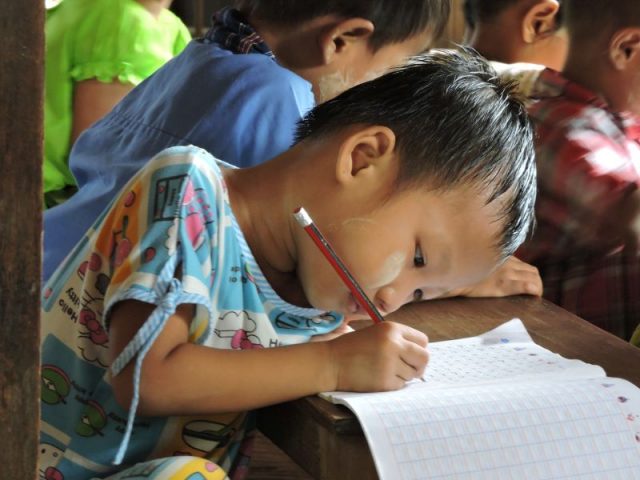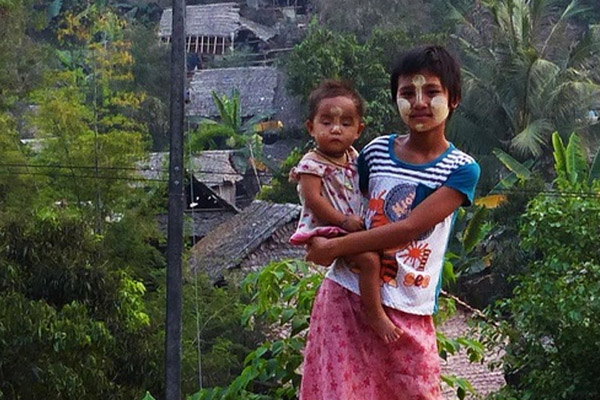Why do ethnic groups in Southeast Asia need help?
No other region on Earth is as diverse as Southeast Asia. Home to more than 600 million residents divided across over 350 ethnic groups, the region is characterised by its wide array of languages, religion, traditions and fascinating social and cultural distinctions. Particularly striking to outside observers lies in Southeast Asia’s unique ethnic, linguistic and religious diversity. The religious makeup of Southeast Asia spans 240 million Muslims, 140 million Buddhists, 130 million Christians, 7 million Hindus and 50 million followers of folklore religion. Similarly, there are more than 1200 languages and dialects spoken across Southeast Asia. It’s not hard to see that such diversity has given Southeast Asia its distinct vibrancy, culture, character and voice that makes the region a hotbed for tourism.
However, diversity does reinforce differences and while some ethnicities are privileged and celebrated, many are marginalised. Unfortunately, it has become a common feature in Southeast Asia for ethnic groups to be overlooked due to historical, political, cultural or linguistic differences. Ethnic minorities are often on the receiving end of unfair treatment, inequality, discrimination and are denied basic civil rights. Inequality has proven to be a major obstacle that ethnic groups are not able to overcome alone. More needs to be done to aid ethnic groups in their quest to overcome inequality.
Inequality suffered by ethnic groups in Southeast Asia
Political Inequality
In parts of Southeast Asia, ethnic diversity has translated into inequality that cuts across political, economic and social domains. Through the lens of the political perspective, ethnic preference is often surfaced as a key determinant in shaping potentially biased policies that result in a knock-on adverse effect on minority groups. In Indonesia for example, the political system favours Muslims and Javanese, which constitute the largest ethnic group in the country. The same is true even in Malaysia. Political inequality is widespread when minority ethnic groups are rarely represented at high political decision-making levels. This means that minority ethnic groups are not fully represented, their voices unheard and their needs neglected.
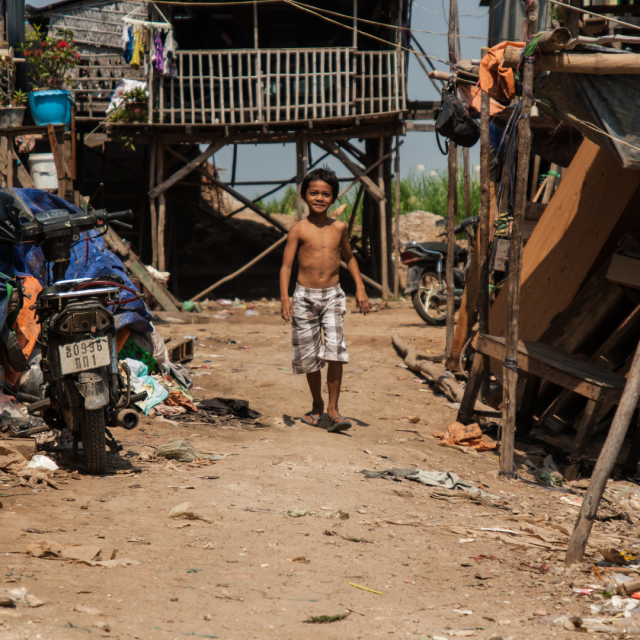 While Cambodia is seen as Southeast Asia’s most homogenous nation, ethnic minorities are increasingly marginalised. With 95% of the population being ethnic Khmer, other remaining ethnic subgroups remain on the periphery with many not recognised by the central government. The government only recognised the Cham and Khmer Leou – an umbrella terminology that collectively categorises other distinct ethnic groups as “indigenous people” without regard for each group’s distinct culture. This meant that many significant ethnic minorities in Cambodia such as Lao, Chinese, ethnic Vietnamese, Montagnard refugees among others are not politically recognised.
While Cambodia is seen as Southeast Asia’s most homogenous nation, ethnic minorities are increasingly marginalised. With 95% of the population being ethnic Khmer, other remaining ethnic subgroups remain on the periphery with many not recognised by the central government. The government only recognised the Cham and Khmer Leou – an umbrella terminology that collectively categorises other distinct ethnic groups as “indigenous people” without regard for each group’s distinct culture. This meant that many significant ethnic minorities in Cambodia such as Lao, Chinese, ethnic Vietnamese, Montagnard refugees among others are not politically recognised.
The ethnic distinction is increasingly apparent in political participation. 60-year-old Cambodia-born Ly Sieng was prevented from voting in the 2013 general election just because she is ethnically Vietnamese. “We are treated like an immigrant,” says Phang Thy Ang, 62 who was also blocked on polling day due to his ethnicity despite being born in Cambodia.
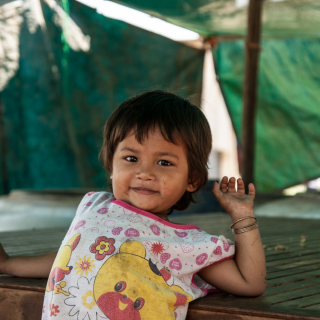 Marginalised ethnic groups continue to live on the margins of society and face difficulties in substantiating their legal status. This is compounded by the discrimination from authorities, lack of knowledge about their rights and poor socio-economic relations that posits as obstacles to their quality of life. Lacking political representation, many ethnic Vietnamese in Cambodia are deemed stateless as they are not recognised as citizens under Cambodian or Vietnamese laws.
Marginalised ethnic groups continue to live on the margins of society and face difficulties in substantiating their legal status. This is compounded by the discrimination from authorities, lack of knowledge about their rights and poor socio-economic relations that posits as obstacles to their quality of life. Lacking political representation, many ethnic Vietnamese in Cambodia are deemed stateless as they are not recognised as citizens under Cambodian or Vietnamese laws.
The consequences of these political marginalisations transcend beyond the right to vote. Void of any political representation and recognised as stateless, some ethnic groups are denied freedom and do not have access to many basic economic, political and social rights. These challenges have induced an adverse direct impact on ethnic communities.
Learn more about our privacy policy here.
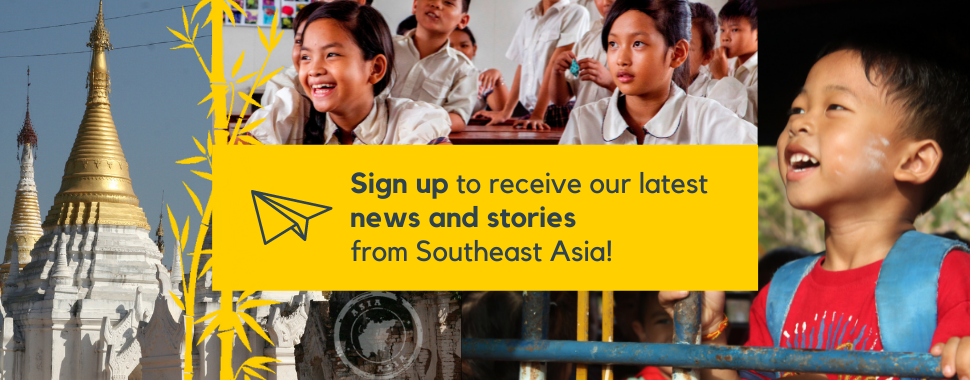
Economic Inequality
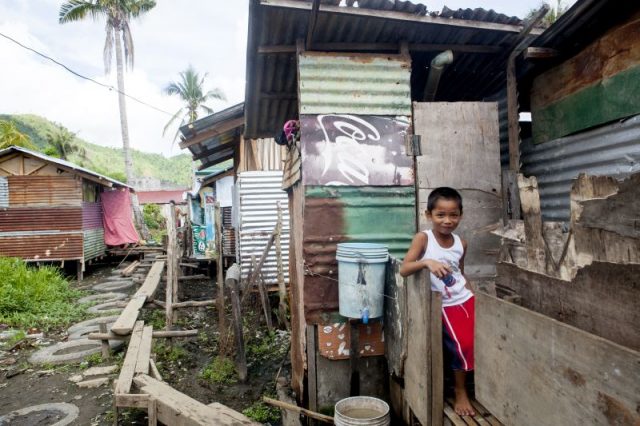 Ethnicity is also reflected in economic inequality. Across Southeast Asian states like Malaysia, Indonesia, Brunei and the Philippines, economic wealth and power are concentrated in the hands of ethnic minorities. For example, ethnic Chinese constitute a minority across all of Southeast Asia except for Singapore. Despite being a minority, the Chinese possess economic dominance over other ethnic groups. According to The Diplomat, economic wealth is concentrated among ethnic Chinese where they account for more than three-quarters of the $369 billion in wealth held by Southeast Asian billionaires. In Malaysia, the average Chinese household possesses 1.9 times as much wealth as the Bumiputras, the local majority ethnic group. Similarly, ethnic Chinese account for less than 1% of the total population in the Philippines but holds more than half the wealth.
Ethnicity is also reflected in economic inequality. Across Southeast Asian states like Malaysia, Indonesia, Brunei and the Philippines, economic wealth and power are concentrated in the hands of ethnic minorities. For example, ethnic Chinese constitute a minority across all of Southeast Asia except for Singapore. Despite being a minority, the Chinese possess economic dominance over other ethnic groups. According to The Diplomat, economic wealth is concentrated among ethnic Chinese where they account for more than three-quarters of the $369 billion in wealth held by Southeast Asian billionaires. In Malaysia, the average Chinese household possesses 1.9 times as much wealth as the Bumiputras, the local majority ethnic group. Similarly, ethnic Chinese account for less than 1% of the total population in the Philippines but holds more than half the wealth.
This economic inequality is also reflected in varying degrees across continental Southeast Asia in states like Myanmar, Thailand, Laos, Cambodia and Vietnam. Billionaires in Cambodia (Mr Kith Meng), Thailand (Dhanit Chearavanont) among others all belong to a class of wealthy ethnic minorities. With certain minority groups being economically privileged and wealth unevenly distributed, the scales of opportunity are heavily unbalanced. Certain ethnic groups who were economically disadvantaged would suffer from the lack of opportunities and the odds of economic liberation would likely be stacked against them.
On the other end of the economic spectrum, many other ethnic minorities also suffer from economic deprivation. In periods between the 1970s and 1980s, Southeast Asia has gone through a process of economic industrialisation that led to rapid economic growth. However, such growth came at a price. The gap between the affluent and the poor vastly increased with inequality becoming increasingly prevalent. These profound consequences are increasingly felt by minority ethnic groups. According to a 2015 research paper done by the Asian Developmental Bank, the poverty rate in Laos is the highest among the Mon-Khmer (42.3%) and Hmong-LuMien (39.8%) minority ethnic groups. This is in contrast to the majority Lao-Tai (15.4%) ethnicity have substantially lower poverty incidences than any other ethnic group.
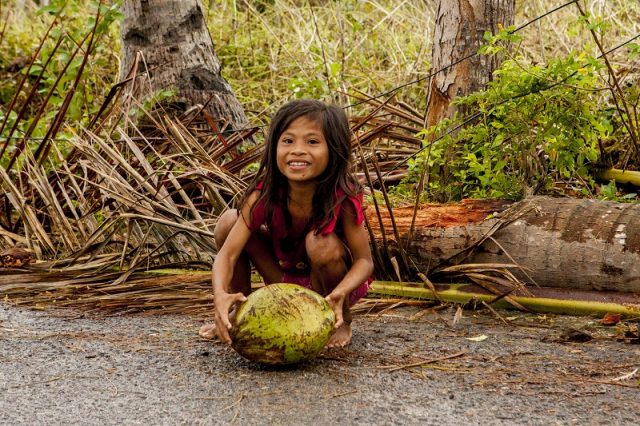 In neighbouring Cambodia as well as in many parts of continental Southeast Asia, ethnic minorities suffer from impoverishment. Ethnic groups often congregate and live in geographically disadvantaged rural areas that are severely underfunded and distant from urban nodes where key amenities and economic activities take place. Ethnic groups living in these areas tend to engage in primary source of economic production that revolves around agriculture, fishing or basic trade crafts. Due to underinvestment, productivity within these economic sectors is usually poor and are only sufficient for the family’s self-sustenance. This meant that many ethnic groups do not have the means to generate sufficient capital surplus to lift themselves out of poverty.
In neighbouring Cambodia as well as in many parts of continental Southeast Asia, ethnic minorities suffer from impoverishment. Ethnic groups often congregate and live in geographically disadvantaged rural areas that are severely underfunded and distant from urban nodes where key amenities and economic activities take place. Ethnic groups living in these areas tend to engage in primary source of economic production that revolves around agriculture, fishing or basic trade crafts. Due to underinvestment, productivity within these economic sectors is usually poor and are only sufficient for the family’s self-sustenance. This meant that many ethnic groups do not have the means to generate sufficient capital surplus to lift themselves out of poverty.
Additionally, severe underfunding like the neglect of basic infrastructure in certain remote regions compounds further economic misery on marginalised ethnic groups. Infrastructure is the currency of development and the backbone of a healthy economy. The presence of infrastructure does not just enable trade but creates employment opportunities. The lack of infrastructure development in rural areas has meant that key amenities like roads, bridges, hospitals and schools are in short supply.
Men and women had to resort to trekking for hours to the nearest urban centre just to conduct trade or to find work. Even crossing a river has proven to be a serious obstacle. In northern Vietnam, residents of the Xuan Lung village, which are of the Nung ethnicity used bamboo sections strung together to create a bridge that becomes the only gateway to the outside world. These flimsy bridges often strung together by discarded cable wires has a life span of just 6 months and proved to be a precarious crossing for many of these villagers. The safety of the villagers lies in the durability of rusty wires used to connect the rafts and both sides of the bridge. Falling into the river has become a daily occurrence and villagers risk drowning as these bridges are not strong enough to withstand the tropical monsoon season. Official statistics highlight that there have been at least seven drowning cases in the past decade.
“I go to school by crossing this bridge every day wearing a life jacket,” says Vy Thi Ket, a primary school student. “I have fallen into the river many times and almost drowned. The life jacket is my best friend and has saved me.” She continued. Vy Thi Ket is just one of the many kids that used these flimsy bridges to cross the 20 meters deep, 140-meter-wide stretch of the river.
Ethnic groups are often on the receiving end of severe economic inequality, neglect and marginalisation. These challenges have become a major dampener on their ability to lift themselves out of poverty. If Southeast Asia is to progress as a whole, the needs of ethnic minorities must be recognised and taken care of.
Social Inequality
Ethnic groups are also vulnerable to a host of social pressures. With poverty weighing heavily on the marginalised community’s shoulders, it is common for these groups to face uphill challenges in gaining access to basic human necessities like healthcare, education and other social welfare services.
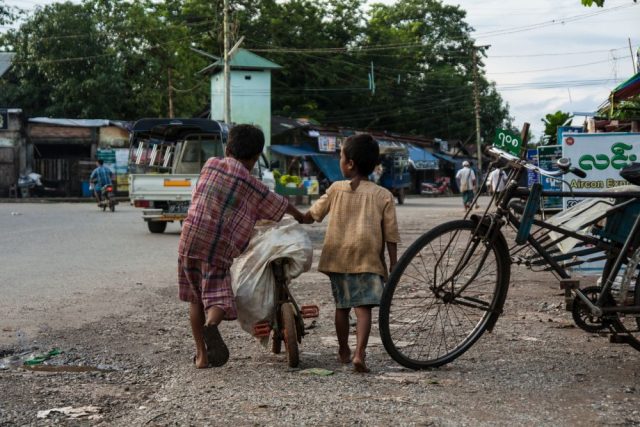 Living in rural and deprived areas meant that its costly to send children to school and parents may not be able to afford it. Due to the poor socio-economic background that ethnic communities face, parents often resort to pushing their children to work, depriving them of crucial education. Even so when children leave school early to enter the labour force, they are likely to end up in occupations that inhibits their chances of breaking out of poverty. Unfortunately, it’s common for parents from poor ethnic minorities to not understand the value of education and not prioritise it. Even if they do, many are unable to afford to send their children to school. Research has shown that there is a higher propensity for children from the marginalised ethnic group left out of school across every stratum of education.
Living in rural and deprived areas meant that its costly to send children to school and parents may not be able to afford it. Due to the poor socio-economic background that ethnic communities face, parents often resort to pushing their children to work, depriving them of crucial education. Even so when children leave school early to enter the labour force, they are likely to end up in occupations that inhibits their chances of breaking out of poverty. Unfortunately, it’s common for parents from poor ethnic minorities to not understand the value of education and not prioritise it. Even if they do, many are unable to afford to send their children to school. Research has shown that there is a higher propensity for children from the marginalised ethnic group left out of school across every stratum of education.
While governments in countries like Laos and Cambodia have made conscious efforts to uplift ethnic groups, development has a cost that needs to be paid. Ironically, minority groups are the ones made to pay. The process of infrastructure development especially in rural areas results in the restructuring of certain ethnic groups’ lifestyles. The construction of the Lower Sesan 2 Dam in Cambodia near the confluence of the Sesan and Srepok Rivers in Stung Treng Province has resulted in the loss of arable land and affected the local fish stock of many villages around the Mekong River region. Studies have shown that constructing the dam would create a significant drop in fish stock, threatening more than 50 species and substantially altering the livelihoods of minority ethnic groups. With agriculture being the main economic strategy that sustains the livelihood of the indigenous people, these developments have become a severe obstacle to their subsistence.
Villagers from these ethnic groups had their appeal for the project to be stopped in the spirit of nature and cultural preservation turned down by the Cambodian government. These appeals are categorically not given the priorities it deserves and has been neglected by the parties involved. With the project being greenlighted, thousands have since been forced to move.
Such cases shed light on the fact that the minority ethnic group’s lack of political voice has the potential to develop into grave social impacts.
Inequality has been a common shared experience for much of the region’s ethnic communities. The differences bred from diversity has translated into discrimination spanning across political insignificance, economic hardship and even social indignities. While the features of diversity have presented challenges, it has also bestowed opportunities for support. Through identifying the range of discrimination that ethnic groups face, greater awareness is achieved. It’s through such effort to raise awareness that the global community would better understand why ethnic groups require help and stand to be in a better position to mobilise support. The international community should come together to promote an upward harmonisation of efforts to combat inequality. Simple actions like raising awareness, advocating against structural inequality or even sponsoring a child from these marginalised communities would go a long way in helping ethnic groups across Southeast Asia. Besides, no individual deserved to be denied access to basic civil rights based on language or skin. Every small step is a path in the right direction in making the world a better place for all.
